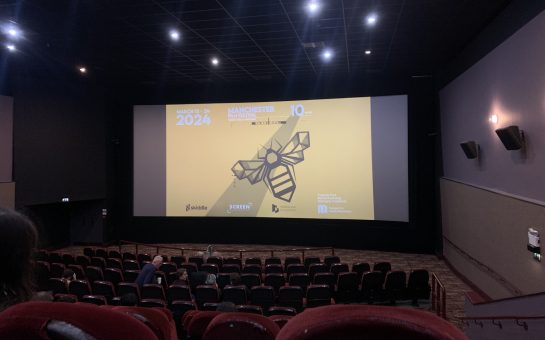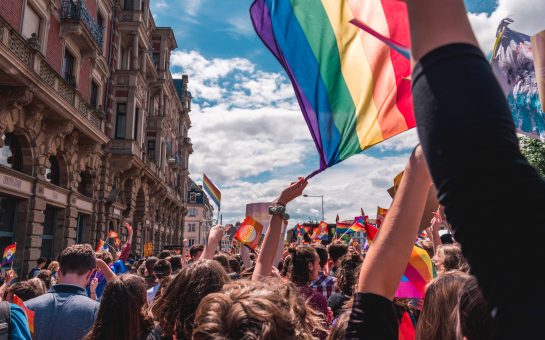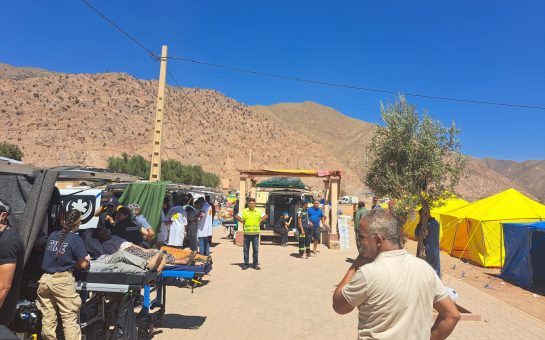The International Day Against Homophobia is ‘beyond important’ in the battle against discrimination, according to the Manchester-based Lesbian and Gay Foundation.
IDAHO, which is celebrating across Manchester and beyond tomorrow, marks the day of the World Health Organisation removing homosexuality from the International Classification of Diseases – May 17 1990.
The LGF said the occasion is essential in raising awareness of the discrimination faced by the related communities in the United Kingdom and across the globe.
“It’s incredibly important – it’s beyond important,” said Grahame Robertson, the LGF resource and information manager.
“IDAHO is needed because 78 countries and six entities still criminalise consensual same-sex among adults with sentences from fines to life imprisonment.
“Among those countries, five as well as parts of Nigeria and Somalia have legal provisions with the death penalty as punishment.”
Mr Robertson added there are considerable barriers, which continue to affect LGB&T people today after years of persecution including chemical castration and electric shocks.
He added individual rights continue to be challenged, despite the increased number of LGB&T people in the media and being viewed as role models.
“We’ve seen lots of positive changes over the past 21 years, but there are still people being discriminated against,” Mr Robertson said.
“They may be battered and murdered for being who they are, the lives they live and loving who they love in England and other countries.
“We continue to see homophobic, biphobic and transphobic hate crimes and young people taking their own lives due to bullying based on sexual orientation and gender.”
Lesbian, gay and bisexual charity Stonewall also spoke highly of IDAHO and communications assistant Jessica Duncan hopes for an equality drive in other areas.
“IDAHO is hugely relevant in 2013 – it’s a chance for people to unite, to share their ideas and to celebrate equality on a global scale,” she said.
“In Britain, lesbian, gay and bisexual people enjoy almost full legal equality but it is a different story globally.
“IDAHO is a vital opportunity to raise awareness of those all around the world that are silenced, imprisoned, violently attacked, defined as mentally ill or murdered – just because they are lesbian, gay or bisexual.”
Stonewall work internationally and are attaching their money-raising Eurovision campaign to IDAHO with the funds assisting global activists in their struggle for their equality rights.
The charity will also share the ‘Some People are Gay. Get over it!’ posters through social media in nine different languages to spread the message.
Ms Duncan added: “We’ve all fought hard for our rights here in the UK, now we’re focusing on helping others in their fight.”
London-based organisation Galop is marking the occasion by using social media to interact with people and raise the profile of homophobia and transphobia.
“LGBT equality has come a long way in the last 20 or so years – certainly from a UK perspective,” said Peter Kelley, the anti-LGBT hate crime charity’s development manager.
“However, that doesn’t mean prejudice and hate has gone away – too many LGBT people still experience abuse, violence and discrimination in the UK.
“We need to challenge attitudes and continue to stand-up to homophobia and transphobia wherever it occurs.”
The LGF established their ‘Fly the Flag’ initiative and Mr Robertson added the project looks to promote social and community cohesion.
“The initiative was primarily aimed at enabling and involving local authority buildings and other public service buildings in marking International Day Against Homophobia,” he said.
And there is an accompanying rainbow flag to recognise and value lesbian, gay, bisexual and transsexual people’s contribution in Greater Manchester.
“Ultimately it’s a simple, positive and visible way to inform and educate individuals about the impact of homophobia, biphobia and transphobia,” Mr Robertson added.
“Flying a rainbow flag results in the people knowing what it represents feeling included and, for those who don’t know what it is, asking and finding out.”
One company supporting the initiative is Barclays, who are including a message on ATM machines across the country as well as a poster in all 1,700 branches across the UK.
Managing director of Barclays UK branch network Barnaby Davis said: “Barclays is really pleased to be able to show our support for IDAHO and the LGBT community through these initiatives.
“This is just one way among many we demonstrate our overriding belief in the rights of individuals to be themselves.
“Barclays not only supports, but actively encourages diversity across our business because we understand its value and its importance to our people, customers and communities in which we operate.”
Mr Robertson said the cooperation from Barclays allows an increased number of people to be informed and the breakdown of more obstacles.
“When companies visibly support LGB&T activities, it demonstrates and reinforces their commitment towards equality, which sends out a message that large organisations recognise, value and celebrate diversity,” he said.
To learn more about the Lesbian and Gay Foundation’s ‘Fly the Flag’ initiative, visit www.lgf.org.uk/flag
To learn more about Stonewall’s Eurovision Song Contest, visit www.stonewall.org.uk/eurovision
Picture courtesy of Anthro_aya, with thanks.
For more on this story and many others, follow Mancunian Matters on Twitter and Facebook.



